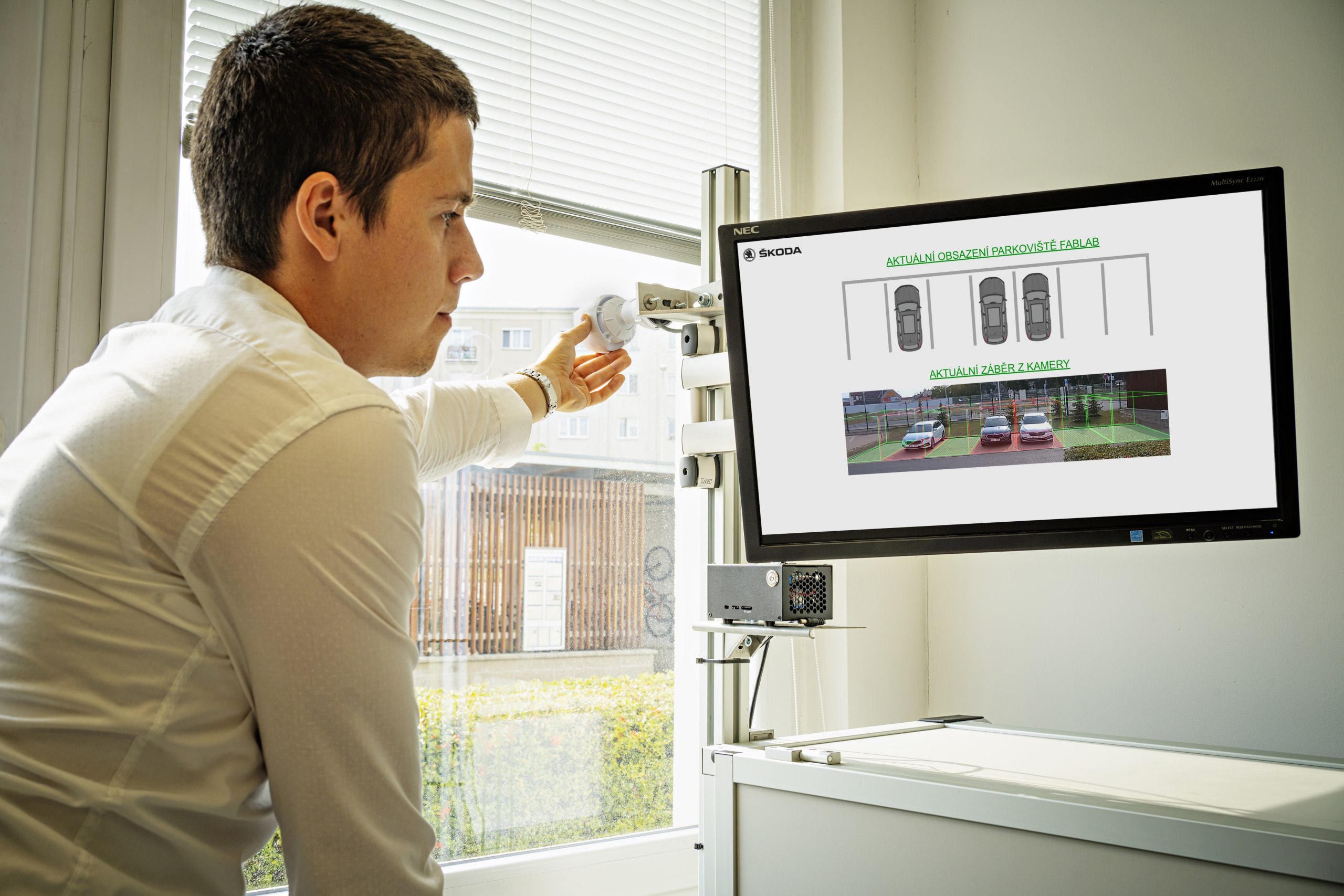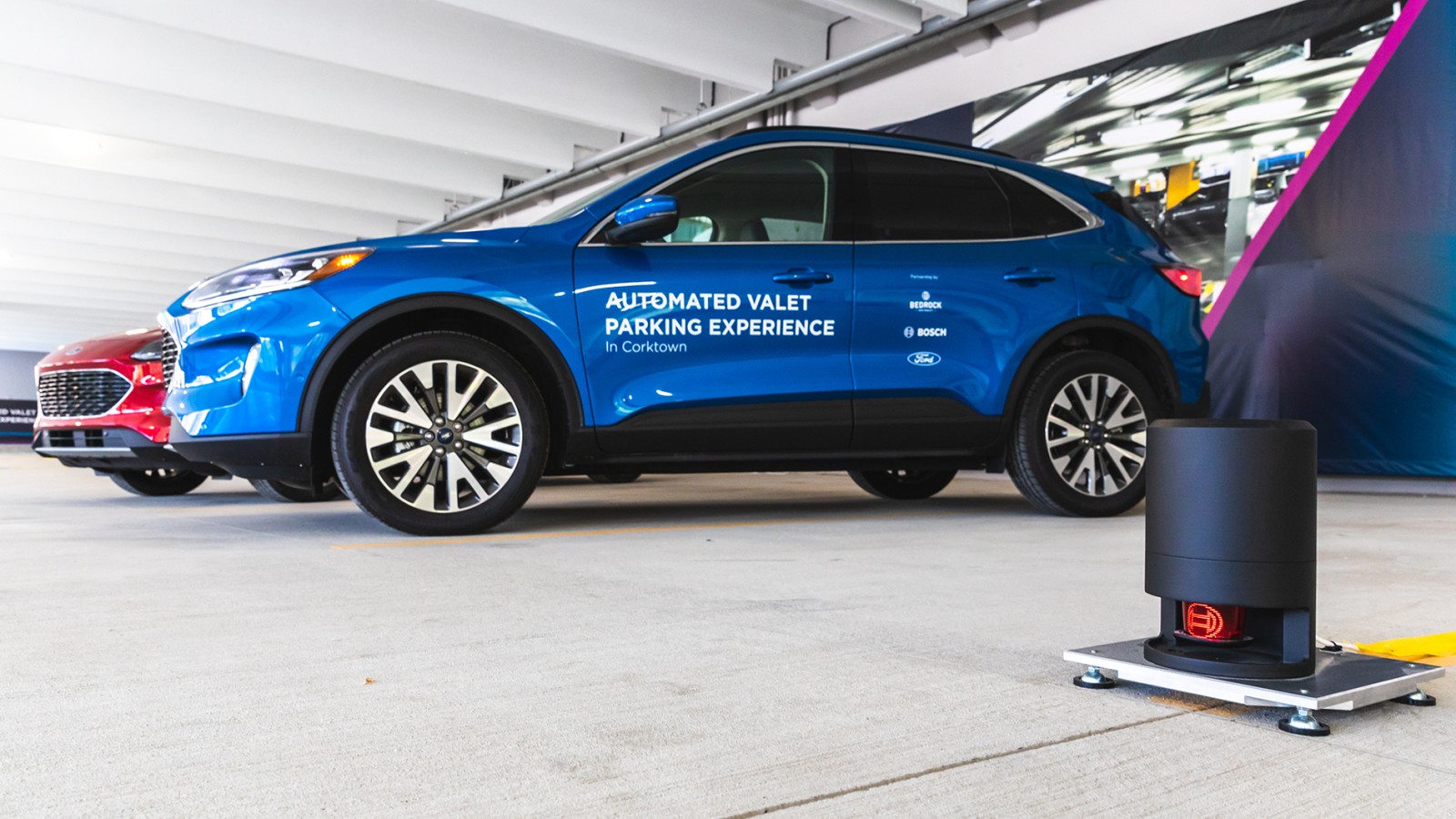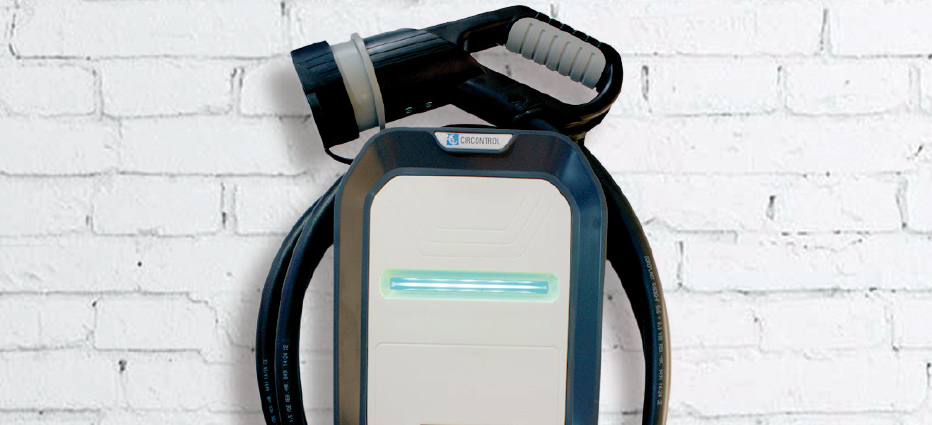With regard to implementing artificial intelligence projects, ŠKODA AUTO is supported by the ŠKODA FabLab, for example. In this Industry 4.0 laboratory, employees from the car manufacturer’s Central Technical Service department work on suitable ideas and specific projects. The lab is divided into different topic clusters and makes ŠKODA AUTO even more flexible in digitalisation, which is one of the company’s key strategic areas. The focus of current projects is primarily on predictive maintenance of machinery and equipment. The team responsible tests the relevant components, supports their integration into production processes and addresses questions regarding diagnostics.
To this end, ŠKODA AUTO is also using a test balloon on its factory premises in Mladá Boleslav. The device uses cameras to monitor the car park and inspects where individual parking spaces are available. For this purpose, the system compares the latest images with previously stored images and is being ‘conditioned’ to recognise certain patterns. In this way, deviations between the latest situation and the ‘trained’ ideal can be detected and automatically evaluated. The AI-based image analysis technology can be used in several different ways in various applications.
Miroslav Kroupa, Head of Brand Management at ŠKODA AUTO, emphasised, “In manufacturing, AI-based image analysis, for example, makes it possible to detect anomalies on equipment even before they become an issue. This will provide us with more flexibility in terms of scheduling required maintenance work and will prevent costly disruptions to production processes. Identifying available parking spaces as part of a pilot project is a great way to optimise the image analysis technology prior to integrating it into everyday operations.”
Upon successful completion of the current testing phase, the AI application is set to assist with coordinating the trucks arriving at the Mladá Boleslav headquarters’ gate 13. Each day sees the arrival of approximately 2,200 trucks that then have to wait in a car park until they are given permission to enter the factory premises. Having said that, ŠKODA relies on the deliveries being made just-in-time, as it follows this production model. The AI technology will contribute towards managing processes more efficiently and sustainably, increasing safety and reducing costs.
Technologies based on artificial intelligence perform cognitive functions that otherwise only humans are capable of. Such programs can interact with their environment, perceive and weigh up facts, solve problems and even carry out creative tasks. As one of the cornerstones of the company’s Strategy 2025, artificial intelligence plays a key role for ŠKODA AUTO in further advancing digitalisation. For the Czech car manufacturer, this applies not only to products and processes, but also to services, where AI technologies help to make customer experiences more personal.








